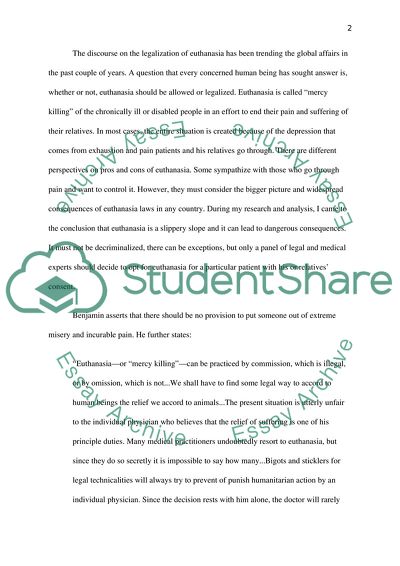Cite this document
(The Discourse on the Legalization of Euthanasia Case Study, n.d.)
The Discourse on the Legalization of Euthanasia Case Study. https://studentshare.org/health-sciences-medicine/1830854-pro-human-euthanasia
The Discourse on the Legalization of Euthanasia Case Study. https://studentshare.org/health-sciences-medicine/1830854-pro-human-euthanasia
(The Discourse on the Legalization of Euthanasia Case Study)
The Discourse on the Legalization of Euthanasia Case Study. https://studentshare.org/health-sciences-medicine/1830854-pro-human-euthanasia.
The Discourse on the Legalization of Euthanasia Case Study. https://studentshare.org/health-sciences-medicine/1830854-pro-human-euthanasia.
“The Discourse on the Legalization of Euthanasia Case Study”. https://studentshare.org/health-sciences-medicine/1830854-pro-human-euthanasia.


